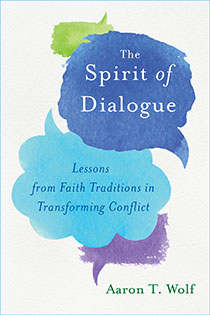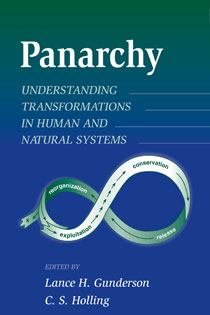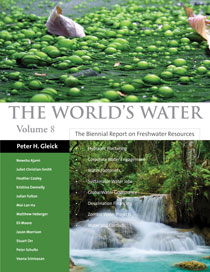This Valentine’s Day, we thought it would be fun for Island Press authors to share the love. We asked a few authors to choose their favorite Island Press book—other than their own, of course—and explain what makes it so special. Check out their responses below, and use code 4MAGICAL for 25% off and free shipping all of the books below, as well as books from participating authors.
What’s your favorite Island Press book? Share your answer in the comments.

My favorite IP book—not that I’ve read them all—is Mike Lydon’s Tactical Urbanism. This book shows how ad hoc interventions can improve the public realm, especially if they’re later made permanent. I discussed the concept on the latest Spokesmen podcast with architect Jason Fertig and illustrator Bekka “Bikeyface” Wright, both of Boston.
—Carlton Reid, Bike Boom and Roads Were Not Built for Cars

Last year I wrote a cover story for SIERRA magazine about how Donald Trump's proposed wall along the US-Mexico border would all but eliminate any chance for recovering jaguar species in the Southwest. In the course of my research I came across Alan Rabinowitz's An Indomitable Beast. It's a great read, blending Rabinowitz's own experiences as a big cat biologist with cutting-edge findings on this amazing species. As a writer, this book and its amazing details helped me bring the jaguar to life for readers.
—Jason Mark, Satellites in the High Country

This day is a time for reaching beyond data and logic to think about deeper ways of knowing. Love, specifically, but I would add to that faith, tradition and ethics. That's why I love Aaron Wolf's new book, The Spirit of Dialogue: Lessons from Faith Traditions in Transforming Conflict. Going beyond the mechanical "rationality" of the typical public meeting is necessary if we are to address the big issues of global sustainability and the smaller issues of how we sustain our local communities. Aaron Wolf provides the experience, tools and promise of a better, deeper approach.
—Larry Nielsen, Nature's Allies

Like many others, I am indebted to to Island Press for not one but three books that profoundly influenced my thinking. Panarchy (2001, edited by Lance Gunderson and C.S. Holling) introduced me to the concept of socio-ecological systems resilience. Resilience Thinking (2006, by Brian Walker and David Salt) taught me what systems resilience really means. And the follow-up book Resilience Practice (2012) helped me start to understand how systems resilience actually works. The latter remains the most-consulted book on my shelf—by Island Press or any other publisher—and I was thrilled and frankly humbled when Brian and David agreed to write a chapter for our own contribution to the field, The Community Resilience Reader (2017).
—Daniel Lerch, The Community Resilience Reader

"A large percentage of my urbanism bookshelf is comprised of Island Press books, so it's very difficult to share my love for just one! So, I won't because the books we pull of the shelf most often these days are the NACTO Design Guides. Finally, a near complete set of highly usable and mutually supportive design standards that help us advocate for and build better streets, better places."
—Mike Lydon, Tactical Urbanism

Nicols Fox's Against the Machine is a book that’s becomes more relevant each year as technology impinges ever further on our daily lives. It’s a fascinating, deeply researched look at how and why people have resisted being treated as extensions of machines.
—Phil Langdon, Within Walking Distance

Lake Effect by Nancy Nichols. I read this book several years ago. It is so important to hear the voices of those whose lives are impacted by industrial age pollutants, lest we slide into complacency. In this case, the story of the chemicals of Lake Michigan. It is a short, beautifully written, disturbing read.
—Emily Monosson, Natural Defense and Unnatural Selection

Peter Gleick’s series, The World’s Water, is one of the most useful surveys of the cutting edge of global waters there is. Each edition brings in-depth coverage of the issues of the day, always eminently readable and backed up by the crack research team that he puts together for each topic. I use it in my classes, always confident that students (and I) will be kept abreast of the best of The World’s Water.
—Aaron Wolf, The Spirit of Dialogue

Mark Jerome Walters' important book, Seven Modern Plagues, places great emphasis on linking emerging diseases with habitat destruction and other forms of modification natural processes. This book is a call for us to recognize that each new disease reflects an environmental warning.
—Andy Dyer, Chasing the Red Queen

My favorite Island Press book is The New Agrarianism: Land, Culture, and the Community of Life, edited by Eric T. Freyfogle. Perhaps it remains my favorite IP text because it is the first IP text I remember reading front to back, twice! I first encountered the book as a graduate student and was struck my its scope and tone. The book is thought provoking. But it's also a joy to read, which isn't surprising in hindsight given the award-winning contributors.
—Michael Carolan, No One Eats Alone
Don't see your Island Press fave? Share it in the comments below!

